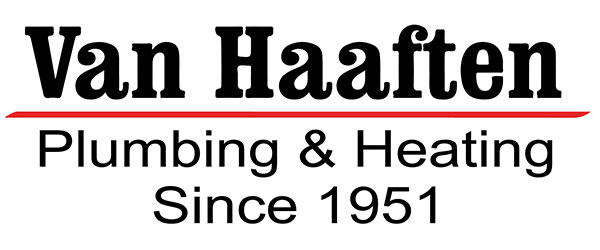Completing the search for your first home is an exhilarating experience. You’re likely trying to keep track of a dozen things or more to ensure you’re making the right choice. We believe that gaining insight into your potential new HVAC system is vital. The property’s HVAC system represents a substantial investment and potential source of long-term costs, illustrating why a detailed inspection helps all first-time homebuyers.
In the following guide, we’ll outline seven tips for learning everything you can about a home’s heating and cooling system. And if you want a deeper opinion from the experts, feel free to call Van Haaften Plumbing & Heating. Our staff can share details about your options with industry insights you won’t find elsewhere.
1. What HVAC System Are You Working With?
Start by determining what kind of HVAC system the home has. Furnaces generally last longer compared to air conditioners, and relatively new types of HVAC systems like heat pumps can offer average life spans that are even longer. Getting the details on the make and specific model gives you a clear idea of how much routine maintenance it might need.
2. What Is the Current System’s Age?
Another good idea is to find out how old the HVAC system is when you’re looking at a new home. For the most part, HVAC systems tend to run for about 10-12 years. Learning its approximate installation date helps you prepare for any needed servicing or considerations if it might shut down for good. Older systems may be more vulnerable to problems, so planning ahead of time for a replacement unit could be necessary sooner than you thought.
3. Is the Warranty Still in Effect?
Be sure to check the HVAC system is covered by a warranty. If it is, this can help with maintenance costs. HVAC warranties often cover parts and labor, but the details in each policy will vary. Review any terms you don’t recognize to make sure you fully understand your coverage and the likelihood of out-of-pocket costs.
4. Has the System Ever Been Professionally Serviced or Maintained?
Next, examine the maintenance history of the HVAC system, if this kind of history is available. This kind of information can demonstrate if the repair needs are high or how often maintenance is performed. You should at least try to track down a history of key tasks such as changing the air filter, which is a positive sign indicating regularly scheduled tune-ups.
5. Do You Know Its Energy Efficiency Ratings?
Purchasing a home with a heating and cooling system with great energy efficiency isn’t just smart; it leads to smaller utility bills and a smaller environmental impact. Try and find the seasonal energy efficiency ratio (SEER) ratings for air conditioning and the annual fuel utilization efficiency (AFUE) for furnaces. The higher the SEER rating, the more efficient the cooling over the whole season, while high AFUE ratings mean the fuel is more effectively burned for useable heat.
6. Have You Noticed Signs of Problems During Your Inspection?
Even without heating and cooling expertise, you should still inspect the HVAC system yourself. Look for any concerning items that weren’t mentioned by the seller or real estate agent. This might consist of odd sounds, unequal airflow and attempts at concealing any serious damage.
7. Have You Sought Out Expert Advice?
If you’re unsure about the condition of the HVAC system, it’s wise to get input from experienced HVAC technicians. They will be much more likely to catch things you might not, like leaking coolant, wiring issues or flawed ductwork.
A Call with Van Haaften Plumbing & Heating Simplifies Your Home-Buying Journey
Choosing your first home ought to be exciting, and Van Haaften Plumbing & Heating can ensure it stays that way. Connect with us at 641-628-3621. We can talk about how our HVAC services help make this process smoother, giving you what you need to step into your new home with confidence.



